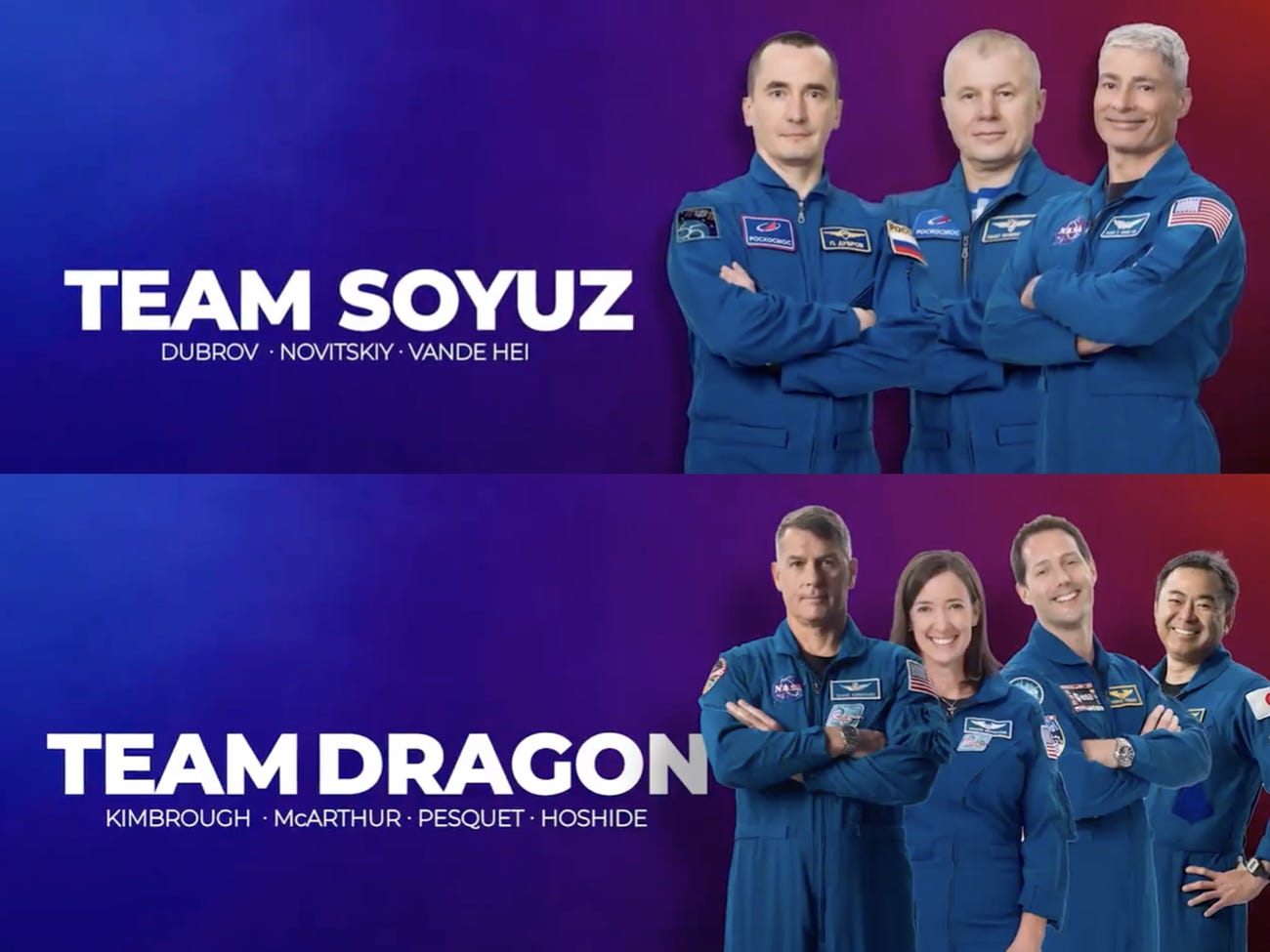
The COVID-delayed 2020 Tokyo Olympics ended on August 8, 2021, with a spectacular closing ceremony and a fireworks show. To mark the occasion, the seven astronauts aboard the International Space Station (ISS) organized the first-ever space Olympics. The four events, modeled after classic Summer Games competitions, included fun twists to account for weightlessness.
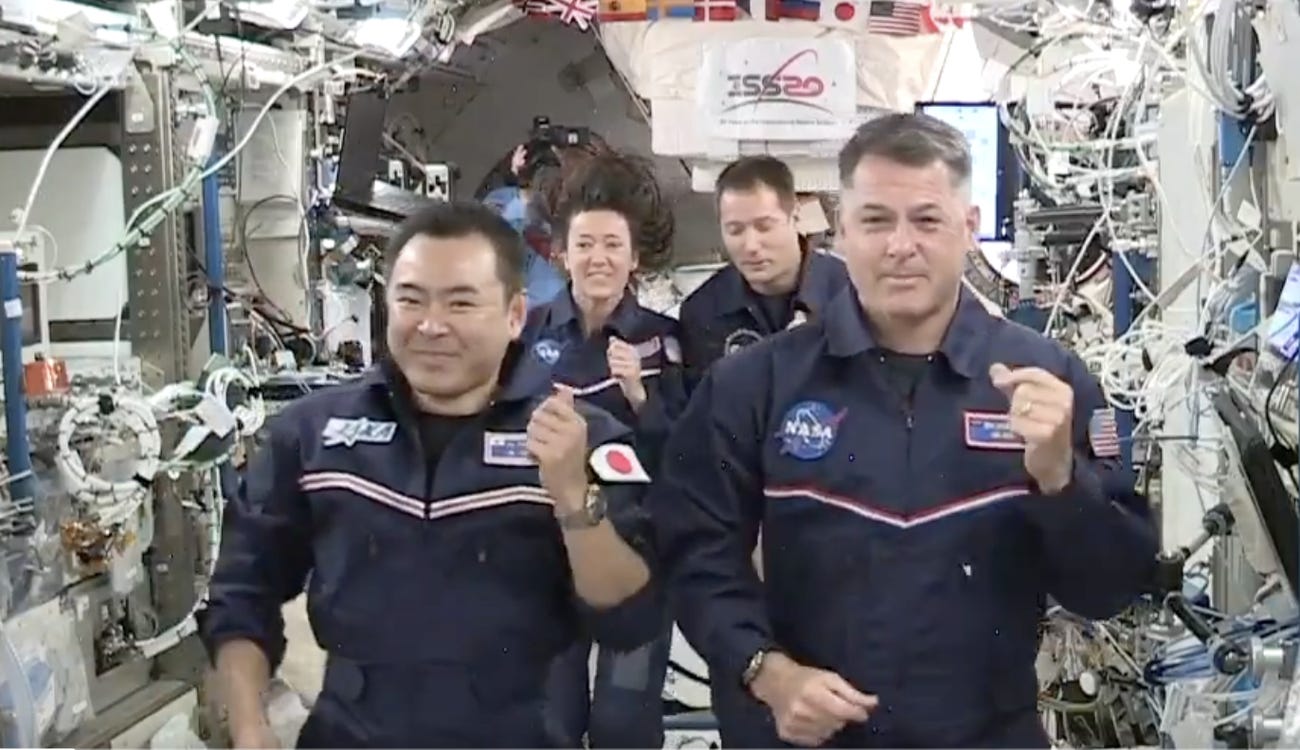
Members of the two teams were selected based on the spacecraft that delivered the astronauts to the ISS. Team Dragon consisted of NASA's Megan McArthur and Shane Kimbrough, Japan's Aki Hoshide, and Thomas Pesquet from France. Team Soyuz included Russian cosmonauts Pyotr Dubrov and Oleg Novitsky, and NASA's Mark Vande Hei.
The two-day event, held the weekend of August 8, 2021, began with synchronized "swimming." The lack of water aboard the space station did not seem to faze the competitors. They performed perfectly choreographed floating routines instead.
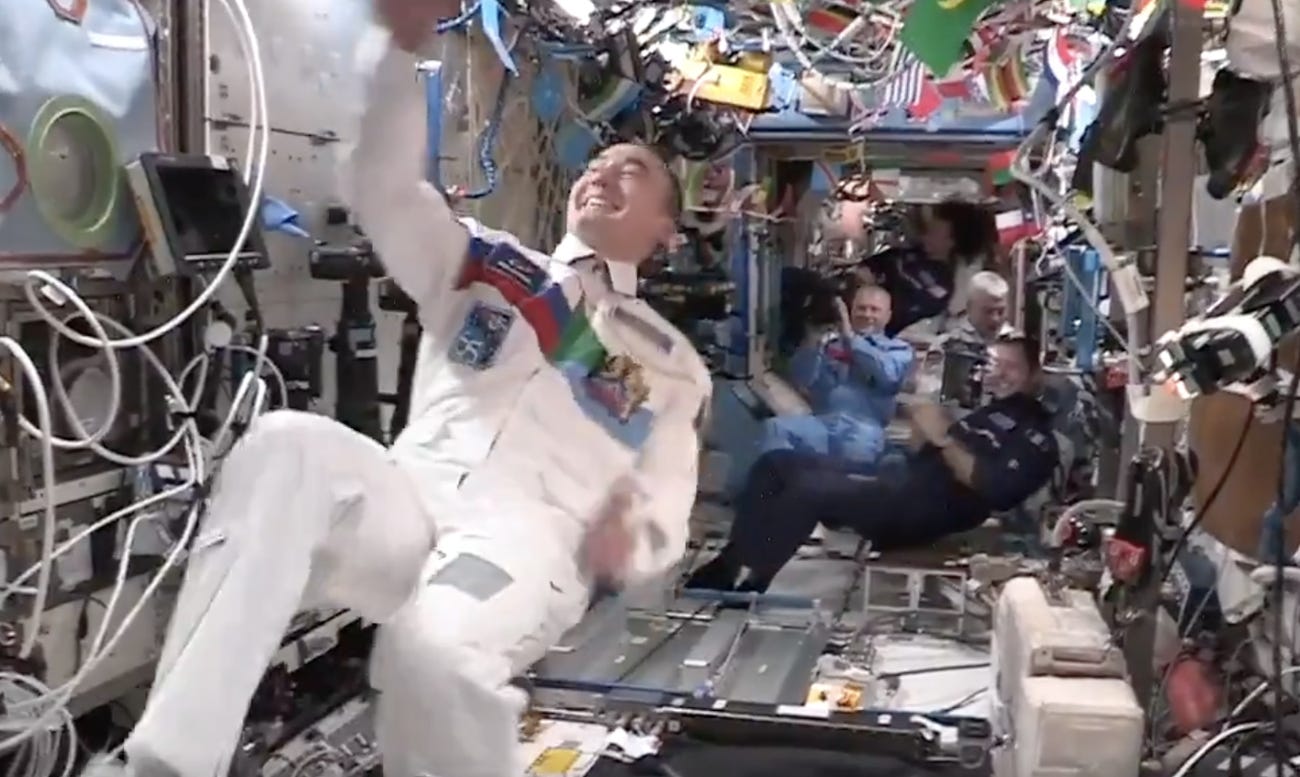
Next up was "lack of floor" gymnastics. The astronauts' zero gravity flips and somersaults would have wowed even the world's best gymnast, Simone Biles. Dubrov received extra praise from his fellow team members for completing his routine without touching the space station's walls.
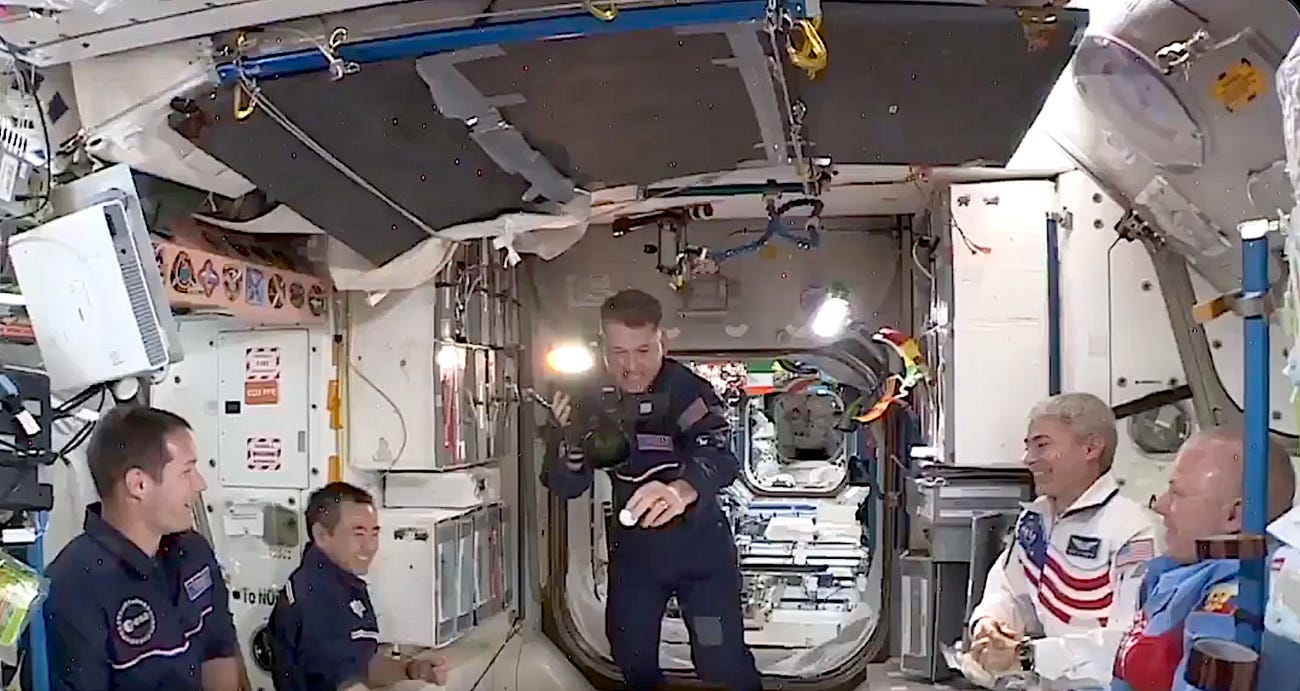
The competition was followed up by a four-minute-long game of handball. On Earth, the players typically run across the field and try to throw the ball into the opposing team's goals. However, on the ISS, the ingenious "no handball" game relied on players using their breaths to blow a small ping pong ball through the opposing hatch - each guarded by a "goalie." The competition was fierce, especially after the rules changed halfway through and allowed for the use of body parts above the knee. The exciting event ended with Team Soyuz scoring in the final few seconds and winning the game.
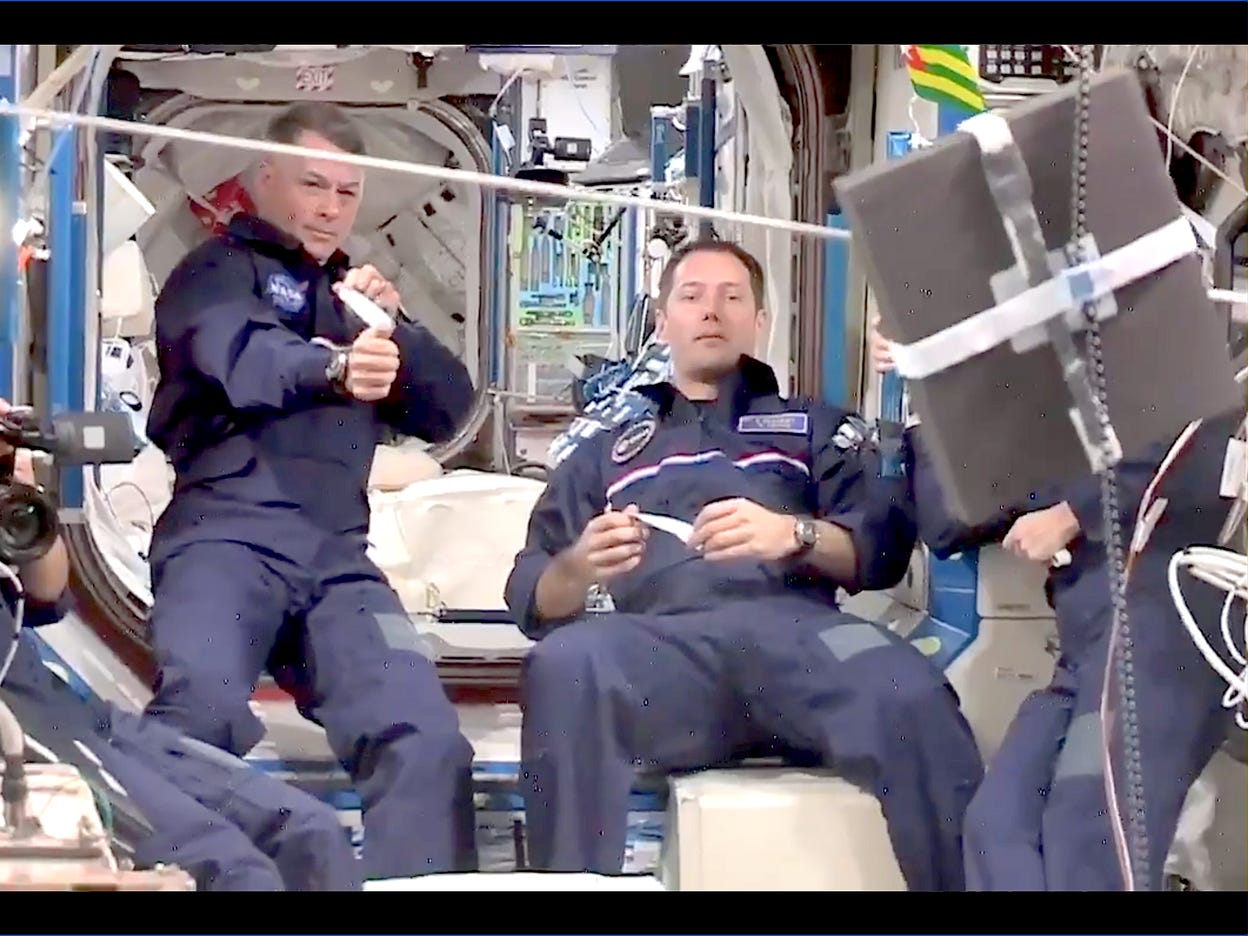
The fourth and final event was sharpshooting, with the astronauts using large rubber bands to hit the target. The lack of gravity and air resistance made the already difficult event even harder.
The space games ended with a symbolic closing ceremony. It mirrored the handover of the Summer Games to Paris on Earth. Hoshide, representing Japan, presented French astronaut Pesquet with a small flag. It featured the Olympics symbol on the front and "Paris 2024" on the back.
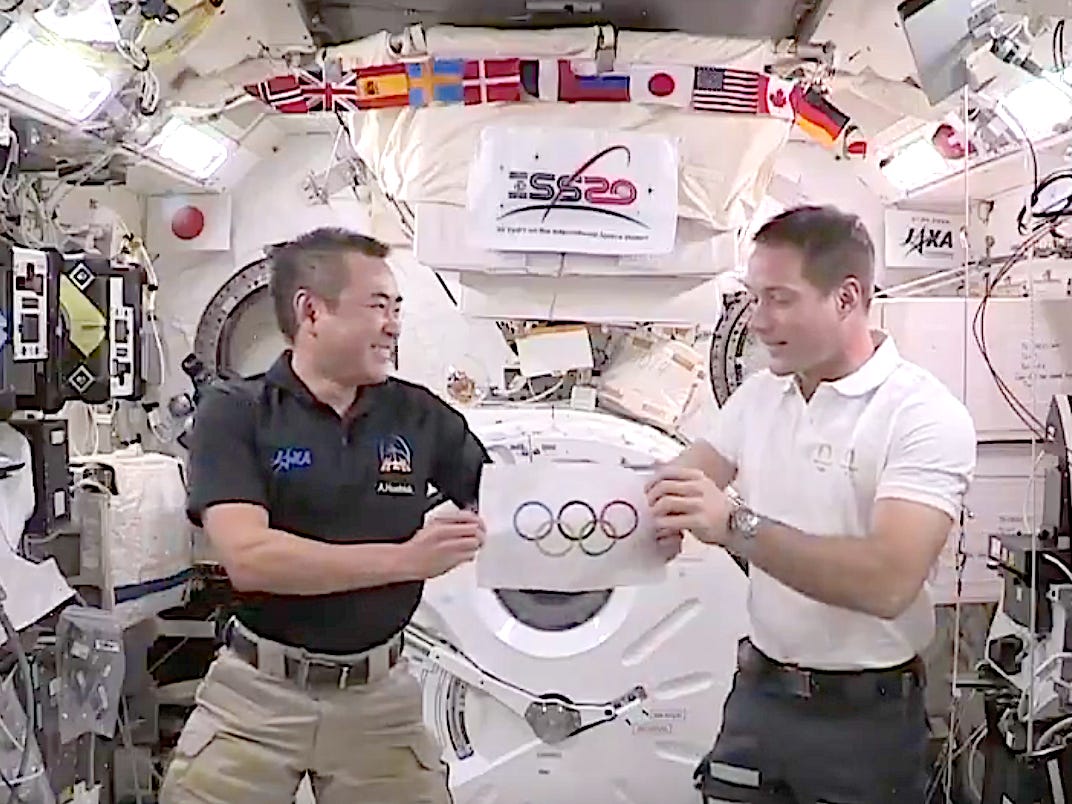
While this was the first-ever space competition, it was not the first time ISS astronauts had celebrated the Olympics. In 2013, Russian cosmonauts performed a spacewalk with an unlit replica of the Olympic torch to mark the 2014 Sochi Winter Games. Similar torches were also used in 1996 and 2000. However, they remained inside the ISS both times.
Resources: Businessinsider.com, Space.com, NASA.gov
